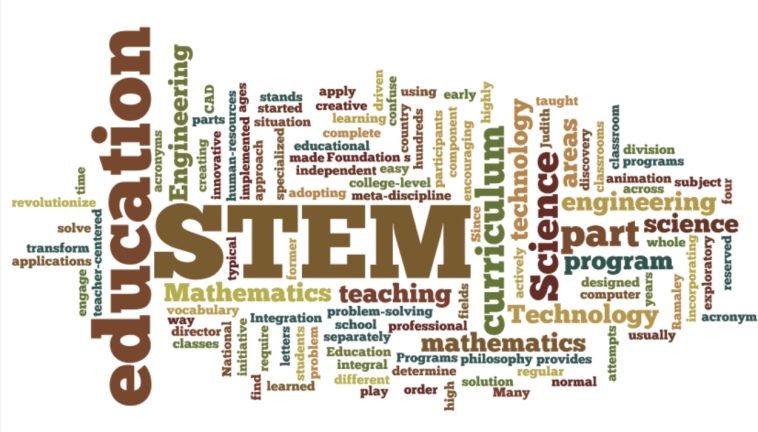In today’s rapidly evolving world, the significance of STEM (Science, Technology, Engineering, and Mathematics) education cannot be emphasized enough. As we move towards an increasingly digital future, nations around the globe, including Pakistan, are recognizing the pivotal role of STEM education in driving innovation, economic growth, and societal development. This article explores the importance of STEM education in Pakistan in 2023 and highlights its benefits, challenges, and various initiatives taken to promote it.
Read More: How Technology is Changing Pakistan’s Education System 2023
Explore the Contents
- 1 Understanding STEM Education
- 2 STEM Education in Pakistan: Current Scenario
- 3 The Benefits of STEM Education
- 4 Closing the Gender Gap in STEM
- 5 Challenges and Opportunities
- 6 Government Initiatives and Policies
- 7 Promoting STEM Education in Schools
- 8 Encouraging Private Sector Participation
- 9 Enhancing Teacher Training Programs
- 10 Fostering STEM Awareness in Rural Areas
- 11 The Role of Parents and Communities
- 12 Collaboration with Industry
- 13 Inspiring Future Innovators
- 14 Conclusion
- 15 FAQs
Understanding STEM Education
STEM education encompasses a multidisciplinary approach that integrates science, technology, engineering, and mathematics into a cohesive learning framework. It emphasizes critical thinking, problem-solving, creativity, and collaboration skills, equipping students with the necessary knowledge and abilities to excel in the modern workforce. By fostering curiosity and inquiry-based learning, STEM education nurtures young minds to become innovators, inventors, and future leaders.
STEM Education in Pakistan: Current Scenario
Currently, Pakistan faces challenges in providing quality education to all its citizens. However, there has been a growing recognition of the importance of STEM education to address this issue. Efforts are being made to enhance the curriculum, teaching methods, and infrastructure to promote STEM education across the country. Although progress has been made, there is still a long way to go in ensuring widespread accessibility and inclusivity.
The Benefits of STEM Education
STEM education offers numerous benefits to individuals, society, and the nation as a whole. Firstly, it equips students with 21st-century skills that are highly valued in the job market. STEM graduates are in high demand due to their proficiency in problem-solving, analytical thinking, and technological literacy. Secondly, STEM education encourages innovation and entrepreneurship, fostering a culture of creativity and discovery. By promoting scientific inquiry and experimentation, it cultivates a mindset of continuous learning and adaptability.
Closing the Gender Gap in STEM
To harness the full potential of STEM education, it is crucial to address the gender gap prevalent in the field. Efforts must be made to encourage and empower girls to pursue STEM subjects and careers. By providing equal opportunities and fostering an inclusive environment, Pakistan can tap into a diverse talent pool and benefit from the unique perspectives and contributions of women in STEM.
Challenges and Opportunities

While the importance of STEM education is widely acknowledged, several challenges hinder its effective implementation in Pakistan. Limited resources, inadequate infrastructure, and a shortage of qualified teachers are significant obstacles.
Additionally, there is a need for targeted interventions to promote STEM education in rural areas and underserved communities. However, these challenges present opportunities for collaboration, innovation, and investment to overcome barriers and strengthen STEM education in the country.
Government Initiatives and Policies
The Pakistani government has recognized the importance of STEM education and has taken several initiatives to promote it. It has introduced policy frameworks that emphasize the integration of STEM subjects into the curriculum and encourage public-private partnerships. These initiatives aim to enhance teacher training programs, develop state-of-the-art STEM labs, and provide scholarships and grants to deserving students.
Promoting STEM Education in Schools
Schools play a pivotal role in promoting STEM education. They should focus on creating a conducive environment for STEM learning. This can be achieved through the inclusion of hands-on experiments, project-based learning, and interactive teaching methods.
By integrating STEM subjects into the curriculum from an early age and providing access to modern technology and resources, schools can inspire and engage students in STEM disciplines.
Encouraging Private Sector Participation
Private sector participation is essential for the sustainable growth of STEM education in Pakistan. Collaboration between educational institutions and industry can bridge the gap between theoretical knowledge and practical application. By fostering partnerships with corporations, startups, and research organizations, students can gain real-world exposure, mentorship opportunities, and internships, enabling them to develop the skills required for the future job market.
Enhancing Teacher Training Programs
Highly qualified and trained teachers are the cornerstone of effective STEM education. Investing in professional development programs and workshops for teachers can ensure that they are equipped with the latest teaching methodologies and subject knowledge. By empowering teachers with the necessary skills, they can inspire students and create a stimulating learning environment.
Fostering STEM Awareness in Rural Areas
It is crucial to promote STEM education in rural areas, where access to quality education and resources may be limited. Initiatives such as mobile STEM labs, community-based learning centers, and outreach programs can help bring STEM education to remote areas. By creating awareness and providing equal opportunities, talented students from rural backgrounds can also contribute to the country’s scientific and technological advancement.
The Role of Parents and Communities
Parents and communities play a vital role in supporting and encouraging STEM education. They can foster a positive attitude towards STEM subjects by engaging in discussions, providing access to educational resources, and participating in STEM-related activities. By creating a home environment that values curiosity, critical thinking, and problem-solving, parents can nurture their children’s interest in STEM from an early age.
Collaboration with Industry
Collaboration between educational institutions and industry is mutually beneficial. Industry partnerships can provide valuable insights into emerging technologies, industry trends, and skill requirements. This collaboration can facilitate the development of industry-relevant curricula, internships, and job placement opportunities, ensuring that students are equipped with the skills and knowledge needed for the workforce.
Inspiring Future Innovators
Inspiring and motivating students to pursue STEM fields is crucial for the long-term success of STEM education in Pakistan. Science fairs, innovation competitions, and mentorship programs can ignite a passion for discovery and problem-solving. By showcasing success stories of Pakistani scientists, engineers, and entrepreneurs, students can envision themselves as future innovators and contributors to the nation’s progress.
Read More: The Role of Tech Incubators and Accelerators in Pakistan in 2023
Conclusion
In conclusion, STEM education is of paramount importance for the progress and development of Pakistan in 2023 and beyond. It equips individuals with essential skills, drives innovation and economic growth, and contributes to solving societal challenges.
By addressing the current gaps, promoting inclusivity, and fostering collaboration between stakeholders, Pakistan can create a robust STEM education ecosystem that empowers its citizens and positions the country as a global leader in science, technology, engineering, and mathematics.
FAQs
1. Why is STEM education important for Pakistan’s future? STEM education is vital for Pakistan’s future as it prepares individuals with the necessary skills and knowledge to thrive in an increasingly technology-driven world. It promotes innovation, economic growth, and societal development, positioning Pakistan as a competitive player on the global stage.
2. How can we encourage more girls to pursue STEM education? Encouraging girls to pursue STEM education requires creating a supportive and inclusive environment. This can be achieved through mentorship programs, scholarships, promoting positive role models, and addressing societal stereotypes that discourage girls from pursuing STEM fields.
3. What are the challenges in implementing STEM education in Pakistan? Challenges in implementing STEM education in Pakistan include limited resources, inadequate infrastructure, a shortage of qualified teachers, and the need for targeted interventions in rural areas. Overcoming these challenges requires collaborative efforts, investment in infrastructure and resources, and the development of comprehensive policies that prioritize STEM education.
4. How can the private sector contribute to STEM education? The private sector can contribute to STEM education through partnerships with educational institutions, funding initiatives, and providing mentorship and internship opportunities. By leveraging their expertise and resources, the private sector can help bridge the gap between academia and industry, preparing students for future career opportunities.
5. What can parents do to support STEM education at home? Parents can support STEM education at home by fostering a positive learning environment, encouraging curiosity, and providing access to educational resources. They can engage in STEM-related activities with their children, promote critical thinking and problem-solving skills, and highlight the real-world applications of STEM subjects.



